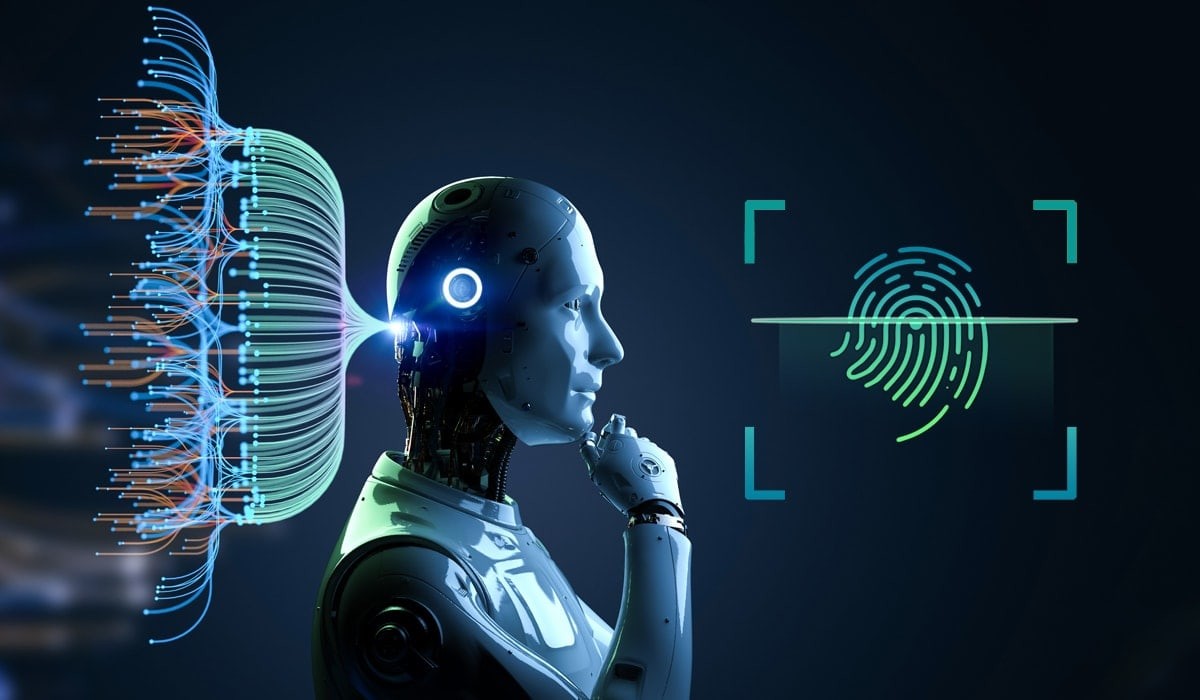How AI is Changing the Future: A Deep Dive into the AI Revolution
Artificial Intelligence (AI) is no longer just a futuristic concept; it is actively shaping our present and revolutionizing our future. From automating tasks to making real-time decisions, AI is transforming industries, redefining the job market, and even changing the way we interact with technology daily. This blog explores how AI is driving innovation across different sectors, the challenges it presents, and what the future might look like in an AI-powered world.
1. AI in Everyday Life
AI has already become a part of our daily routines, often in ways we don’t even realize. Virtual assistants like Siri, Alexa, and Google Assistant help us perform tasks using voice commands. Recommendation systems on Netflix, YouTube, and Spotify personalize content based on our preferences. Even predictive text in our smartphones and spam filters in our email leverage AI to improve user experience.
Moreover, AI is powering smart homes, self-driving cars, and facial recognition technologies, making everyday activities more seamless, secure, and efficient. As AI advances, its integration into daily life will become even more profound.
2. AI in Healthcare: Saving Lives and Advancing Medicine
The healthcare industry is one of the biggest beneficiaries of AI. From diagnosing diseases to assisting in surgeries, AI is improving medical care in ways we never imagined.
- Early Disease Detection: AI-powered diagnostic tools analyze medical images (X-rays, MRIs, and CT scans) to detect diseases like cancer at an early stage.
- Drug Discovery: AI speeds up drug development by analyzing vast datasets to identify potential treatments faster than traditional methods.
- Personalized Medicine: AI helps doctors tailor treatments based on a patient’s genetic makeup and medical history, increasing the effectiveness of therapies.
- Robotic Surgery: AI-assisted robots perform minimally invasive surgeries with precision, reducing recovery times and improving patient outcomes.
3. AI in Business and Finance
AI is reshaping business operations, increasing efficiency, and helping companies make data-driven decisions.
- Chatbots and Customer Support: AI-powered chatbots provide 24/7 customer support, reducing the need for human intervention.
- Fraud Detection: AI detects fraudulent transactions in real-time by analyzing transaction patterns in banking and finance.
- Stock Market Predictions: AI algorithms analyze financial trends and market data to make stock predictions and assist investors.
- Supply Chain Optimization: AI helps businesses manage inventory, predict demand, and optimize logistics, reducing costs and improving efficiency.
4. AI in Education: Transforming Learning Experiences
AI is revolutionizing education by making learning more personalized, accessible, and efficient.
- Personalized Learning: AI analyzes students' progress and tailors lessons to their strengths and weaknesses.
- Automated Grading: AI can grade assignments and provide instant feedback, saving teachers time.
- AI Tutors: Virtual AI tutors help students understand complex subjects and provide additional support outside the classroom.
- Language Translation: AI-powered translation tools help break language barriers, making education accessible worldwide.
5. AI in Transportation: The Rise of Autonomous Vehicles
Self-driving cars are one of the most exciting applications of AI in transportation. Companies like Tesla, Waymo, and Uber are developing autonomous vehicles that aim to reduce accidents and improve traffic efficiency. AI is also being used for:
- Traffic Management: AI-powered systems analyze real-time traffic data to optimize routes and reduce congestion.
- Predictive Maintenance: AI detects potential vehicle malfunctions before they occur, preventing breakdowns.
- Smart Public Transport: AI enhances public transportation by optimizing routes and schedules for efficiency.
6. AI in Manufacturing: The Fourth Industrial Revolution
AI is leading the fourth industrial revolution by automating manufacturing processes and improving productivity.
- Smart Factories: AI-powered robots and IoT devices streamline production, reducing waste and increasing efficiency.
- Quality Control: AI systems inspect products for defects more accurately than humans.
- Predictive Maintenance: AI predicts machinery failures before they happen, reducing downtime and maintenance costs.
7. AI in Cybersecurity: Fighting Digital Threats
As cyber threats become more sophisticated, AI is playing a crucial role in strengthening cybersecurity.
- Threat Detection: AI identifies and responds to cyber threats in real time.
- Fraud Prevention: AI analyzes patterns to detect suspicious activities and prevent fraud.
- Automated Security Responses: AI-powered systems can take immediate action against cyberattacks without human intervention.
8. Challenges and Ethical Concerns of AI
While AI offers numerous benefits, it also presents challenges and ethical concerns:
- Job Displacement: Automation may replace certain jobs, requiring workers to reskill.
- Bias in AI: AI systems can inherit biases from the data they are trained on, leading to unfair decisions.
- Privacy Issues: AI-powered surveillance and data collection raise concerns about personal privacy.
- AI Ethics: The development of AI should align with ethical guidelines to prevent misuse in areas like deepfakes, autonomous weapons, and misinformation.
9. The Future of AI: What’s Next?
The future of AI looks promising, with advancements in:
- Artificial General Intelligence (AGI): AI that can perform any intellectual task a human can do.
- AI and Human Collaboration: AI will augment human abilities rather than replace them.
- AI in Space Exploration: AI will assist in interplanetary missions and space research.
- AI and Sustainability: AI will help address climate change by optimizing energy use and reducing waste.
Conclusion
AI is changing the world at an unprecedented pace, transforming industries, improving daily life, and solving complex problems. However, with great power comes great responsibility. While AI presents immense opportunities, it must be developed and deployed responsibly to ensure a future where it benefits humanity as a whole.
The AI revolution is here, and it’s only just beginning. How we harness its potential will define the future of our society, economy, and way of life.







